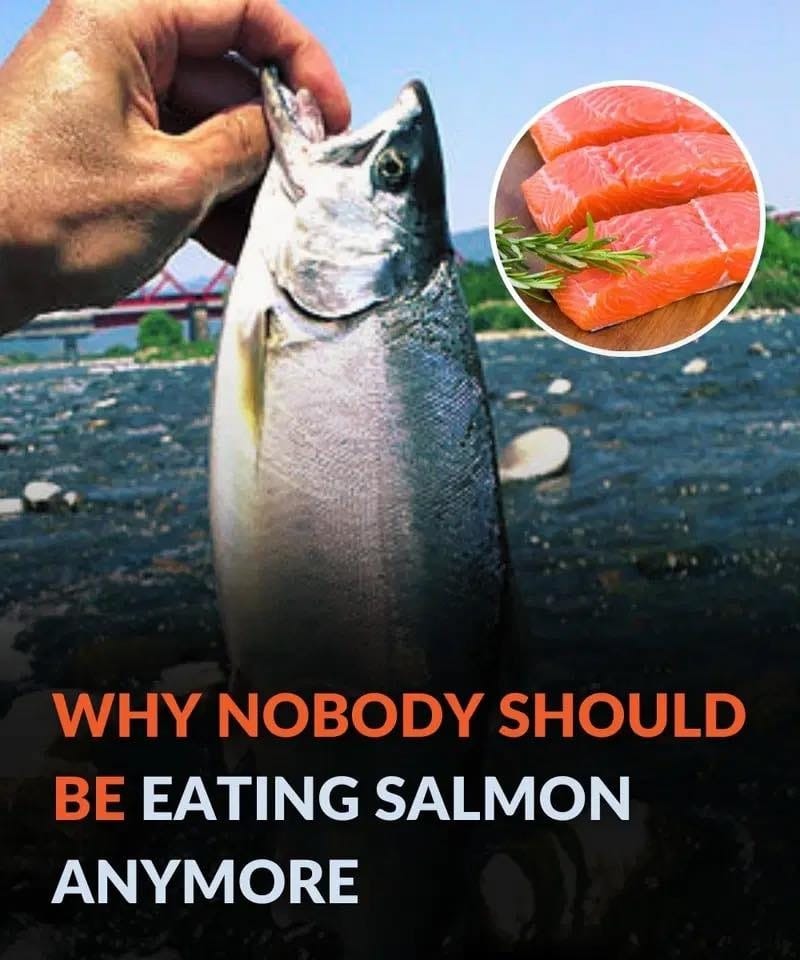ADVERTISEMENT
## 8. The Ethics of Salmon Farming
Ethical concerns extend beyond environmental issues:
* **Animal Welfare:** Farmed salmon often experience stress, disease, and limited mobility.
* **Antibiotic Use:** Overuse can harm surrounding wildlife and human health.
* **Social Impact:** Large salmon farming operations can disrupt local fishing communities.
Consumers increasingly demand transparency and ethical practices in seafood production.
—
## 9. Salmon Alternatives: Healthy and Sustainable Options
If you’re reconsidering salmon, there are plenty of delicious and nutritious alternatives:
* **Arctic Char:** Similar flavor, often farmed more sustainably.
* **Mackerel:** Rich in omega-3s, smaller fish with lower contaminant levels.
* **Sardines:** Nutrient-dense, sustainable, and inexpensive.
* **Trout:** Wild and farmed options, often with a smaller environmental footprint.
* **Plant-Based Omega-3s:** Flaxseeds, chia seeds, and algae supplements for vegans.
Exploring these options can diversify your diet while reducing environmental impact.
—
## 10. How to Choose Salmon Responsibly
If you still want to enjoy salmon occasionally, consider these tips:
* **Check Certifications:** Look for labels like MSC (Marine Stewardship Council) or ASC (Aquaculture Stewardship Council).
* **Know Your Source:** Ask if it’s wild-caught or farmed and where it’s from.
* **Seasonal Eating:** Buy wild salmon during peak seasons to support natural cycles.
* **Limit Consumption:** Follow guidelines to avoid excess contaminants, especially for pregnant women and children.
Being an informed consumer helps promote better industry practices.
—
## 11. Cooking Tips for Salmon and Its Alternatives
To maximize flavor and nutrition:
* **Use Gentle Cooking Methods:** Baking, steaming, or grilling preserves nutrients.
* **Avoid Overcooking:** Salmon becomes dry if overdone; aim for opaque and flaky.
* **Pair with Vegetables:** Add fiber and antioxidants for balanced meals.
* **Try Marinades and Herbs:** Lemon, dill, garlic, and mustard enhance taste without extra calories.
These tips work for salmon and most fish alternatives.
—
## 12. Frequently Asked Questions
**Q: Is farmed salmon safe to eat?**
A: Generally yes, in moderation and from reputable sources, but be mindful of contaminants.
**Q: How often can I eat salmon?**
A: Most health guidelines recommend 2-3 servings of seafood per week, including salmon.
**Q: Can children and pregnant women eat salmon?**
A: Yes, but they should choose low-contaminant sources and limit intake as advised.
**Q: Are canned salmon and smoked salmon good options?**
A: They can be, but check for sodium content and source information.
—
## 13. Final Thoughts: Making Informed Choices About Salmon
Salmon is undeniably delicious and nutritious, but its growing popularity has sparked concerns about health risks, environmental impact, and ethical considerations. Rather than avoiding salmon altogether or consuming indiscriminately, the key is to make informed choices.
Understanding where your salmon comes from, how it’s raised or caught, and how it fits into a balanced diet can empower you to enjoy it responsibly or explore tasty alternatives.
Next time you sit down to a salmon dish, ask yourself: *“Is this the best choice for my health and the planet?”* Being thoughtful about what we eat helps protect our well-being and the world’s oceans.
—
If you’d like, I can also help you with recipes for sustainable seafood dishes or plant-based meals to diversify your diet! Would you like that?
